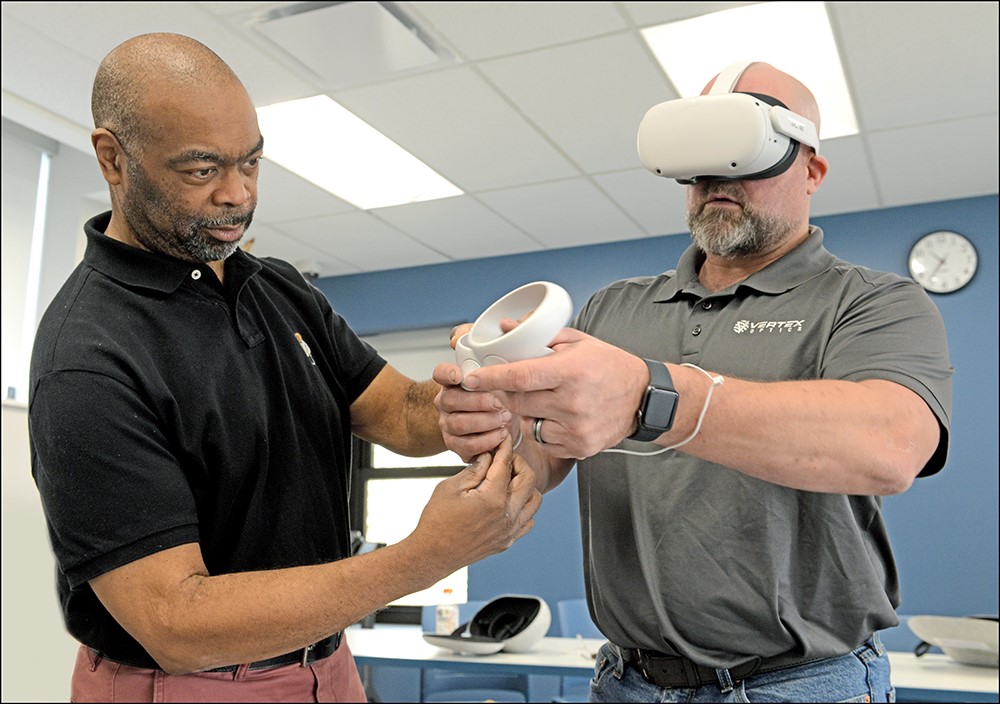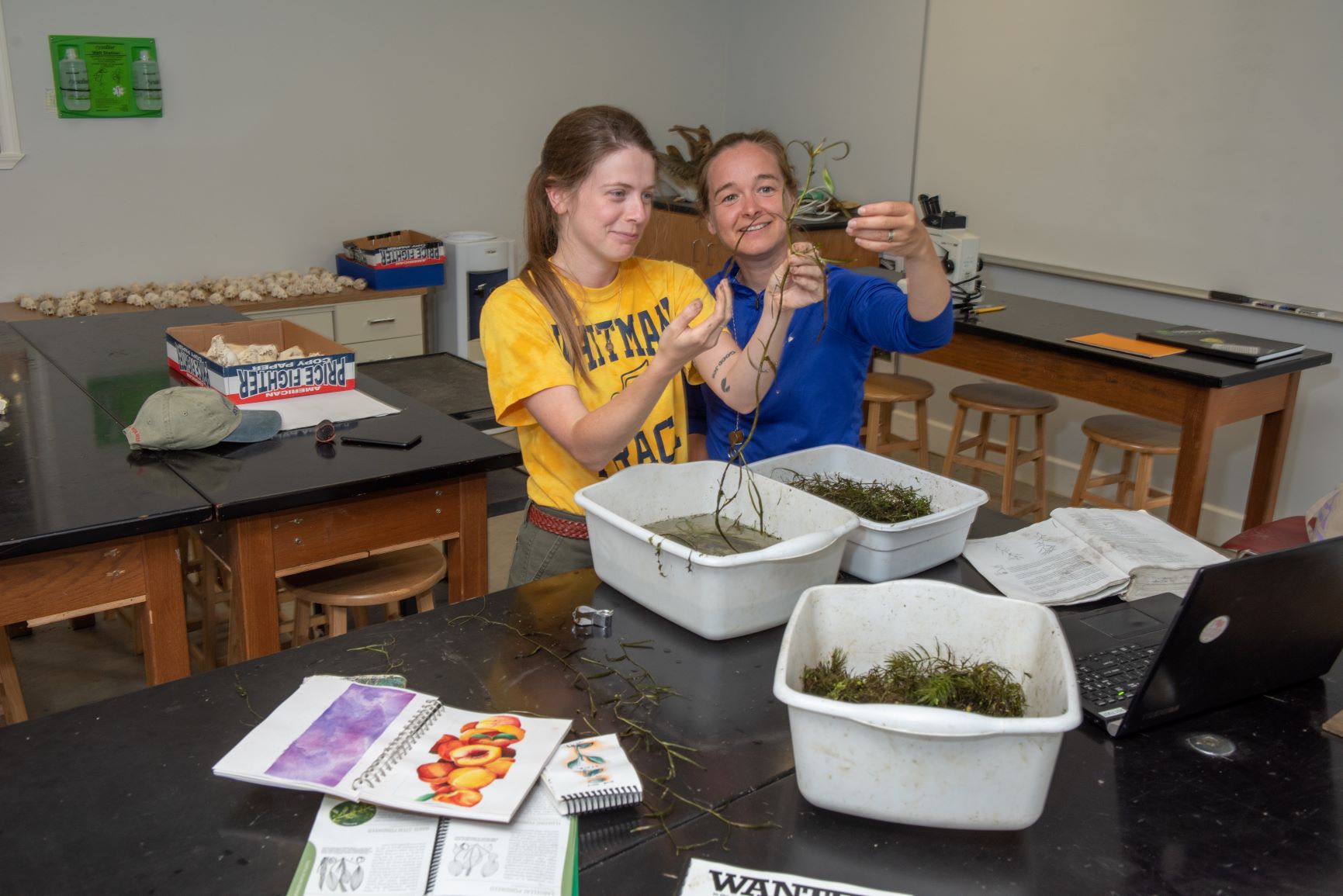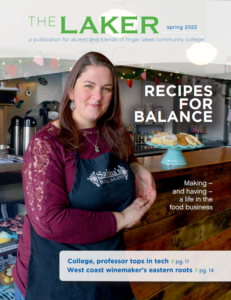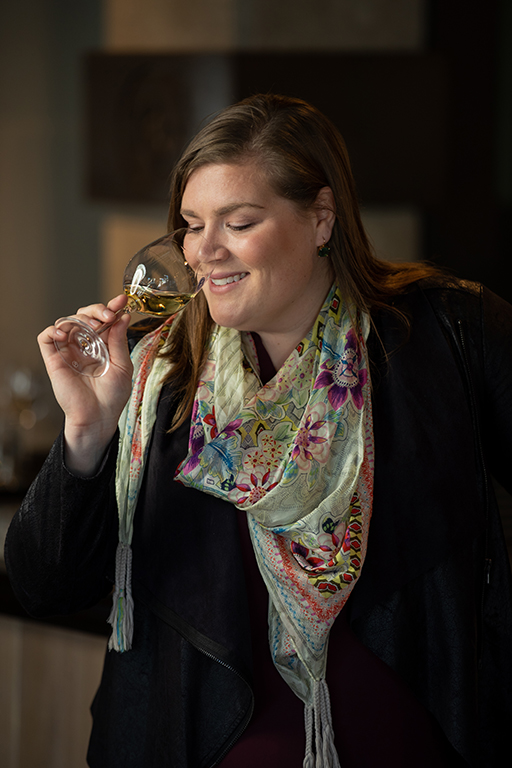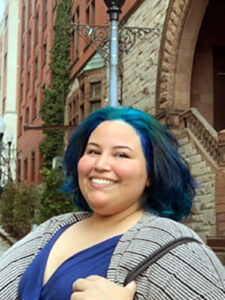
Sarah Frost of Geneva, a graphic design major at Finger Lakes Community College, was among 45 State University of New York students honored in April with the Norman R. McConney Jr. Award for Student Excellence.
The award recognizes students in the SUNY Educational Opportunity Program (EOP) for their academic merit and strength in overcoming significant personal obstacles.
Frost, 38, has struggled with learning disabilities, including attention deficit hyperactivity disorder (ADHD) and dyscalculia, which makes it harder to do tasks involving math. She has also coped with COVID isolation and a physically disabling illness.
“Slowly but surely, I have started to regain my strength. I am so grateful for my teachers, I have no words that can equal the amount of gratitude I feel for them,” she said. “The same goes for my EOP support. Having weekly meetings where I can touch base with my advisor, Nicole (Siegwarth), felt like having family care for you.”
Frost also found encouragement in joining the student organization AALANA, which stands for African American Latino/a, Asian and Native American. She plans to transfer to a four-year school and continue her studies in graphic design.
“Sarah is a shining example of what it means to be an EOP student and a Norman R. McConney Jr. Award recipient. Her will to succeed is a testament to her perseverance, grit, resilience and determination,” said Lisa Thomas, director of the EOP program at FLCC. “Even when things seemed impossible, Sarah dug deep, utilized her resources, and turned things around. She continues to rise above her circumstances, and we are excited to see her continue her journey.”
Frost encourages other students struggling with illness and disability not to give up.
“It’s going to be hard at times, but remember to talk to your EOP advisors. They will never steer you wrong, and they will always be there when you need them. Just keep trying,” she added.
The Norman R. McConney Jr. Award for Student Excellence is named in memory of a graduate of the University at Albany and former assistant dean for special programs at SUNY. McConney (1946–2016) and former Assembly Deputy Speaker Arthur O. Eve helped create EOP as a statewide program.
Frost attended an award ceremony in Albany on April 14 with Thomas and Siegwarth, the EOP academic support outreach specialist.
“I can tell you this right now, if not for EOP, I would not have made it this far. When I was running low on food, they assisted me. When I needed new school supplies, they were there,” she said. “I think that every school needs people like Lisa and Nicole because without them a lot of underprivileged students would get lost in the shuffle.”
“I have had the great fortune of working with Sarah very closely in my role,” Siegwarth added. “She is warm, talented, funny, and spirited. Her inner strength and motivation to be successful in life despite the many personal, academic, and financial hurdles she has faced is inspirational. I wish it was something that I could bottle and share with all of our students. I am so proud of her and her determination and cannot wait to see what comes next. She knows I will always be there to offer support and to cheer on her success.”
Since its inception in 1967, the EOP has provided access, academic support, and supplemental financial assistance to students from disadvantaged backgrounds, many of whom are the first in their families to attend college. In its 55-year history, the EOP has served more than 78,000 students and evolved into one of the country’s most successful college access programs.
In the current academic year, SUNY has nearly 8,000 EOP students on 50 SUNY campuses. EOP students often outperform their peers, with 74 percent of them graduating with a baccalaureate degree within six years.
Frost credited several faculty and staff for contributing to her success.
“I would like to give a special thank-you to my teachers and staff: Margaret Pence, Barbara J. Senglaub, Lacey McKinney, Nicole Siegwarth, Lisa Thomas, Dorren Allen-Carr, Sim Covington, Amy McGowan, Andrea Cornett, Suzanne Marino, Jodi Merklinger, Melissa Soules, and Aaron Sullivan. Thank you from the bottom of my heart. Without knowing it, you have helped make my dreams come true,” she said.


